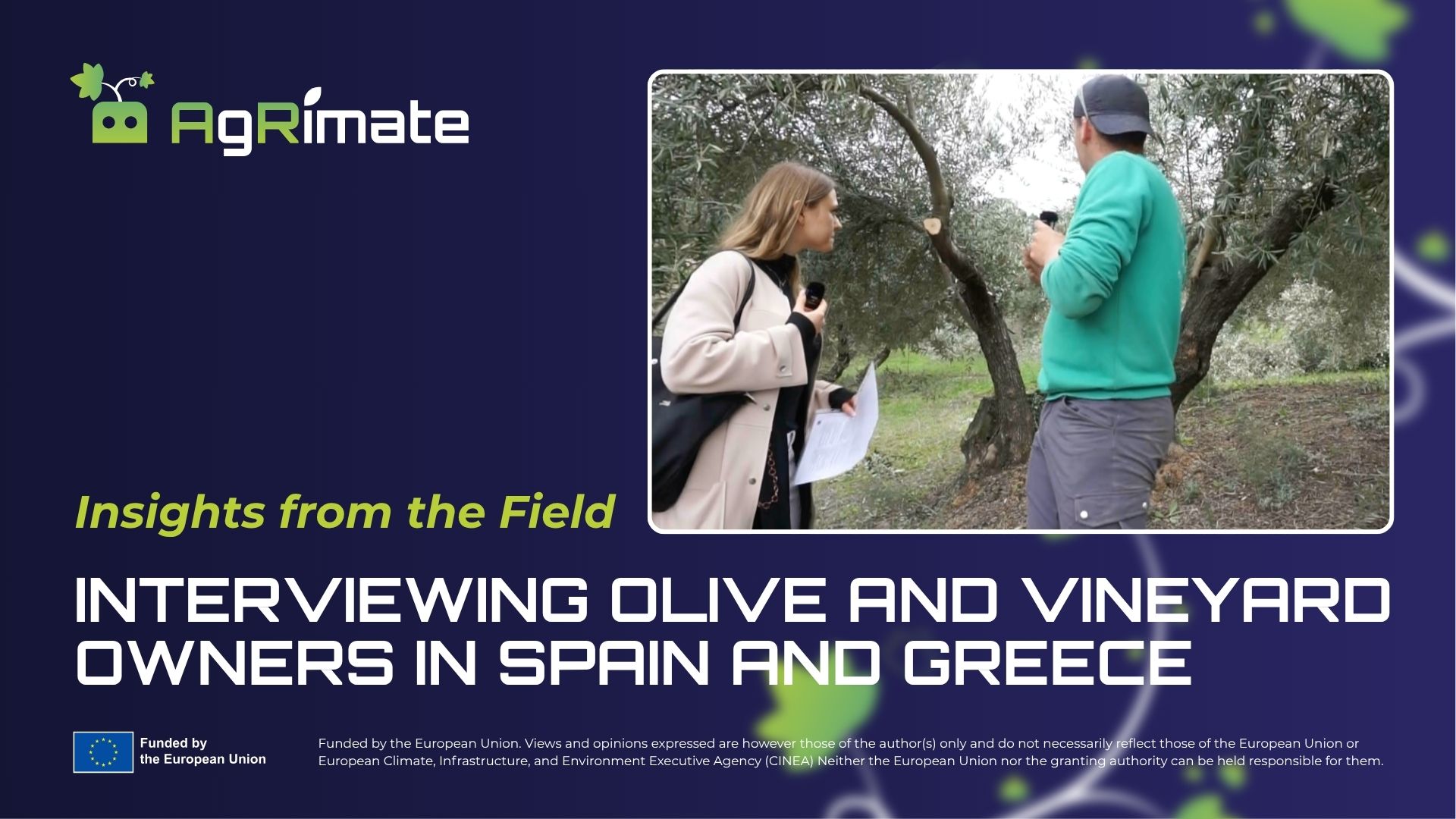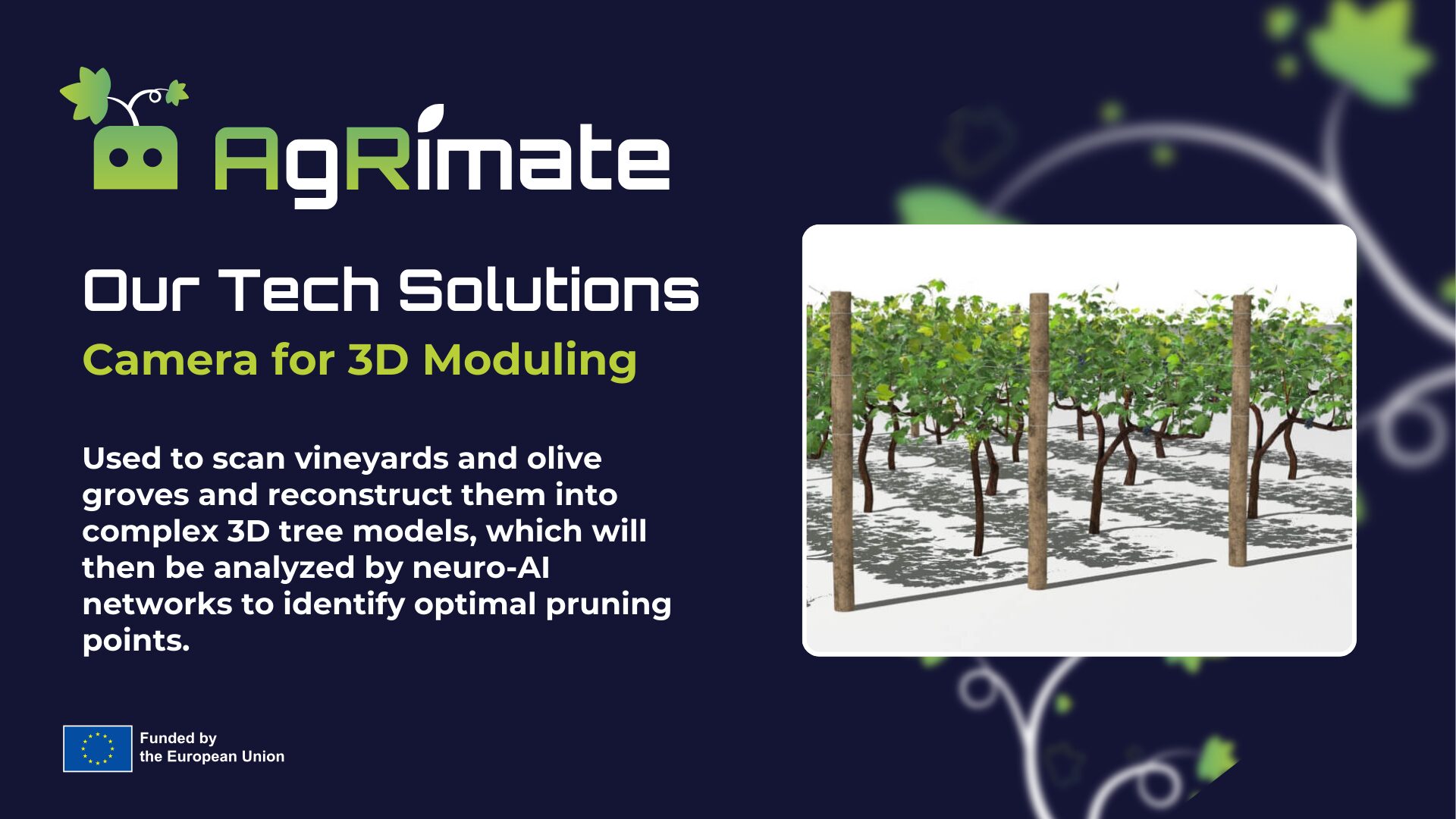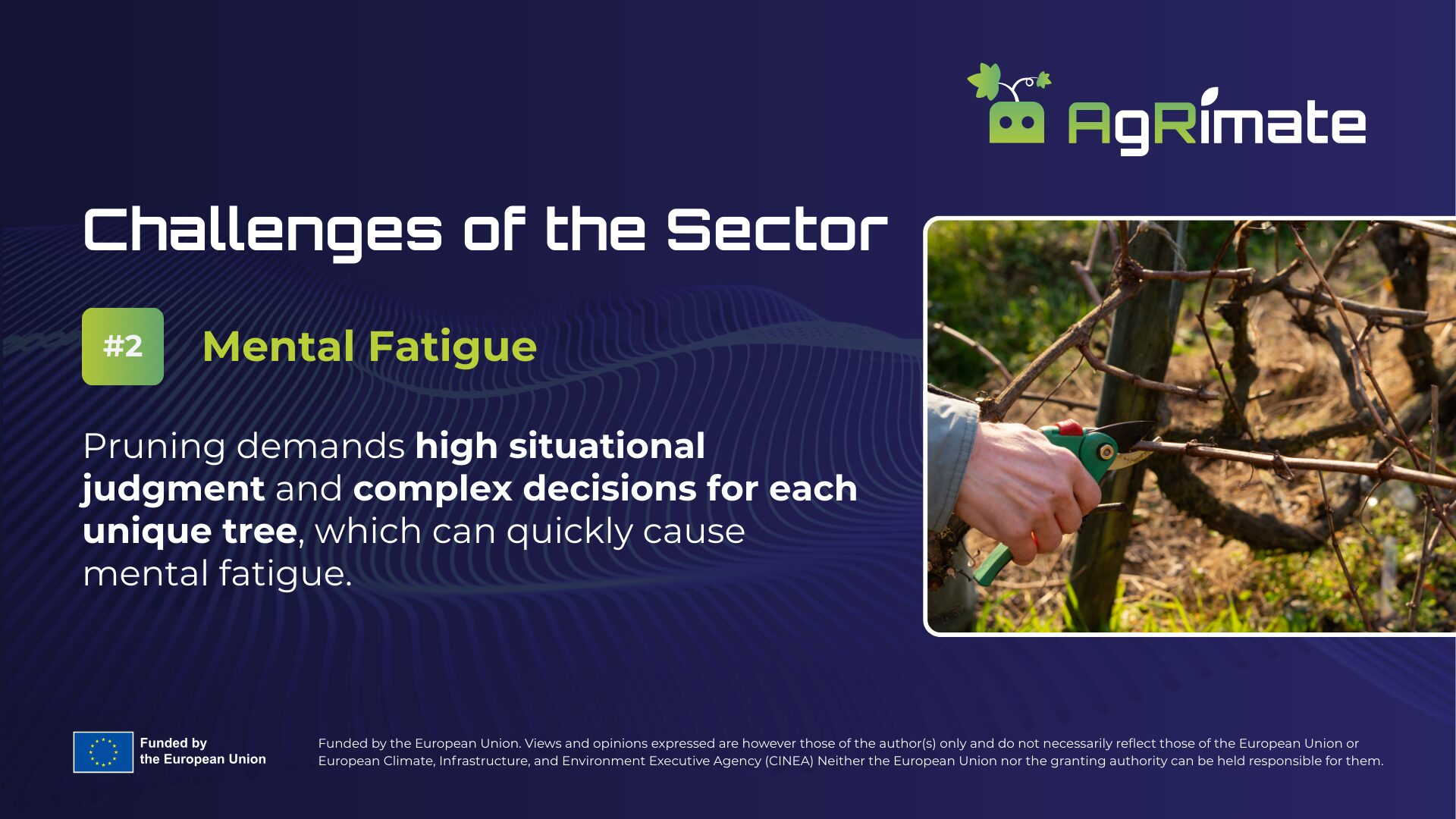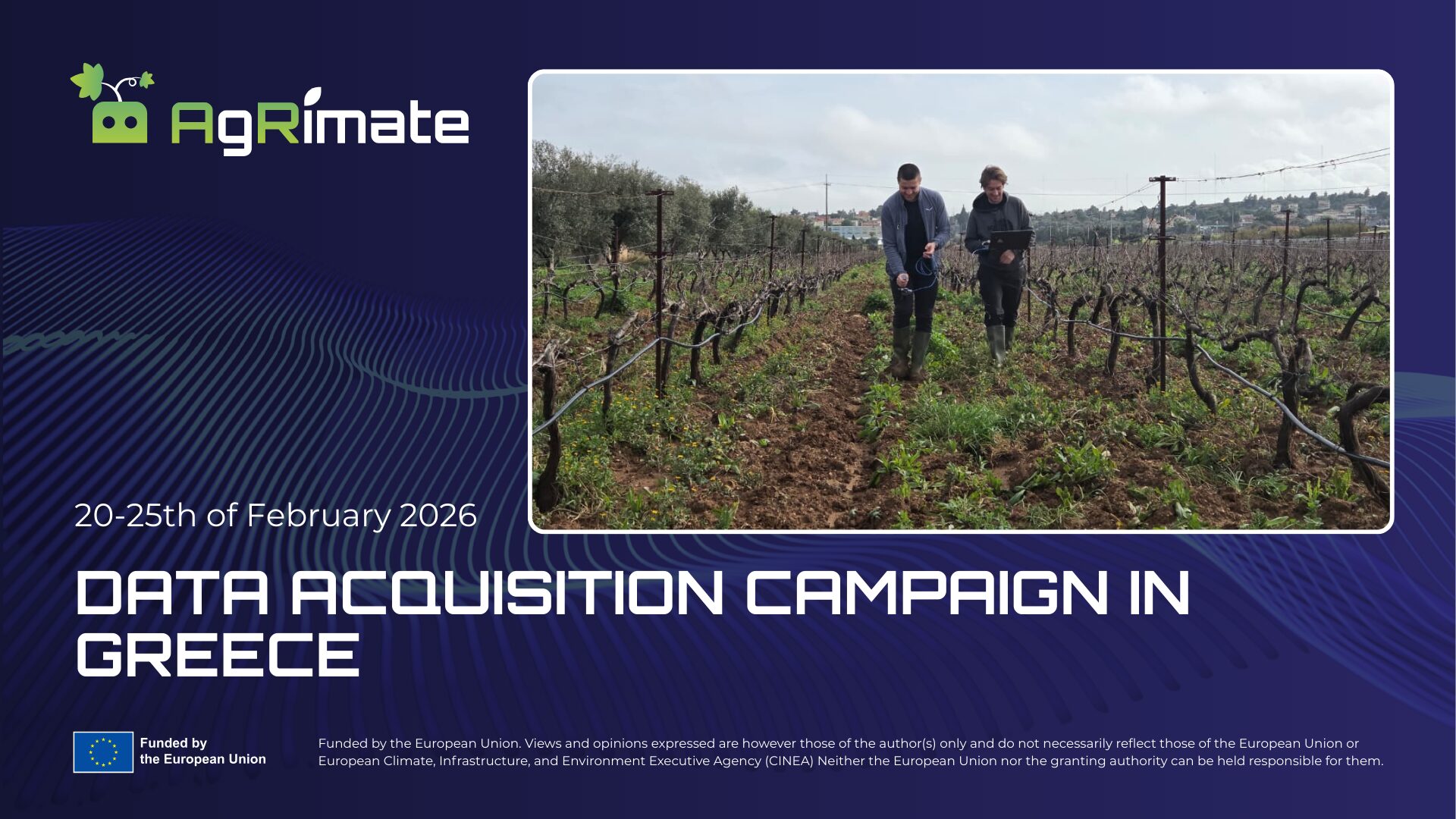News & Events

Insights from the Field: Interviewing Olive and Vineyard Owners in Spain and Greece
As part of our AgRimate’s mission, we’re dedicated to understanding the real daily experiences of farmers. To get a closer look at the psychosocial working conditions in the agricultural sector, our partners Humboldt-Universität zu Berlin (UBER) recently conducted a series of field visits and interviews in Spain and Greece.
Our Journey in Spain 🇪🇸
In early March, Humboldt-Universität zu Berlin (UBER) traveled to Jaén, Spain, to conduct the first of five interviews with olive grove farm owners. During our visit, we walked through local olive groves and gained firsthand insight into the complexities of the pruning process. To get a complete picture, the partner spoke with a farm owner about his daily work and regional specifics, like regulated harvesting times.
The role of agricultural cooperatives was also explored, holding a follow-up interview with the president of a cooperative via Zoom. After this field visit by UBER, Union de Pequenos Agricultores y Ganaderos (UPA) helped arrange three more online interviews with farm owners, giving a richer understanding of the diverse challenges in the sector.
The primary goal was to explore the psychosocial working conditions of these farmers. They spoke about their daily tasks, job demands, resources, and their views on new technologies like exoskeletons.
The most surprising discovery? Despite the visible challenges, the farm owners’ passion for their work and the unwavering support from their families left a powerful impression.



